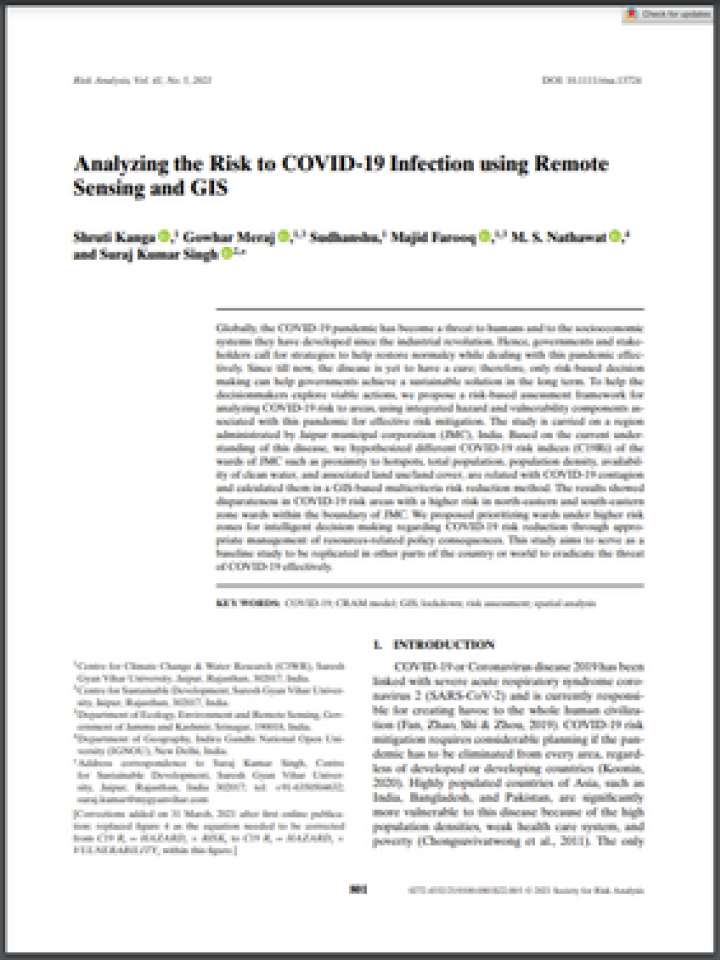Analyzing the risk to COVID-19 infection using remote sensing and GIS
This study aims to serve as a baseline study to be replicated in other parts of the country or world to eradicate the threat of COVID-19 effectively. Globally, the COVID-19 pandemic has become a threat to humans and to the socioeconomic systems they have developed since the industrial revolution. Hence, governments and stakeholders call for strategies to help restore normalcy while dealing with this pandemic effectively. Since till now, the disease is yet to have a cure; therefore, only risk-based decision making can help governments achieve a sustainable solution in the long term. To help the decisionmakers explore viable actions, the researchers propose a risk-based assessment framework for analyzing COVID-19 risk to areas, using integrated hazard and vulnerability components associated with this pandemic for effective risk mitigation.
The study was carried out in a region administrated by Jaipur municipal corporation (JMC), India. The results showed disparateness in COVID-19 risk areas with a higher risk in north-eastern and south-eastern zone wards within the boundary of JMC. The researchers proposed prioritizing wards under higher risk zones for intelligent decision making regarding COVID-19 risk reduction through appropriate management of resources-related policy consequences.
Explore further

